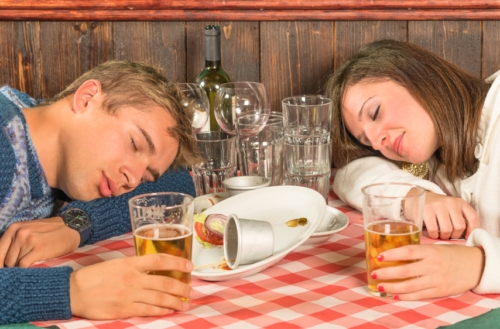 Getting tired after eating is a pretty normal occurrence for many of us, especially after eating a heavy meal loaded with carbohydrates.
Getting tired after eating is a pretty normal occurrence for many of us, especially after eating a heavy meal loaded with carbohydrates.
Simple carbs (white flour, white potatoes, sugar) are notorious for making people feel very tired after eating and the reason why is related to blood glucose levels.
After eating refined carbs, the body turns them into fuel using the sugar from those foods. But the sugar gets released quickly, is burned, and then it’s gone, leaving you with an energy crash, causing feelings of sleepiness and sluggishness.
The best way to avoid feeling tired after eating carbs is to eat complex carbs (i.e. brown rice, whole-wheat pasta, oats, and beans) and combine them with protein and fat. These carbs are harder for your body to digest, and they raise blood sugar much more slowly and steadily. By leveling off your blood sugar level in this way, you have a constant level of energy, which will lead to not feeling really tired after eating.
Examples of well-balanced meals that won’t result in a crash are:
- A piece of salmon with brown rice and broccoli; and
- A chicken breast, a sweet potato, and a hearty salad loaded with vegetables and topped with a healthy fat such as olive or avocado oil.
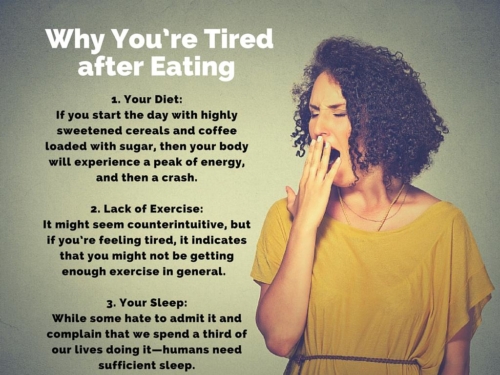
3 Reasons You’re Tired after Eating
Why do you get tired after you eat? The following four reasons may help explain why you’re feeling tired after eating.
1. Your Diet
What you eat is incredibly important because it affects how you feel throughout the day. If you start the day with highly sweetened cereals and coffee loaded with sugar, then your body will experience a peak of energy, and then a crash. Avoiding this cycle means choosing whole-grain cereals, healthy fats, eggs, and vegetables to start the day off right and stay away from processed foods and refined white flours. Maintain this throughout the day and make good food choices by opting for fresh fruits and vegetables, lean proteins, complex grains, and legumes.
Natural sugars, such as those found in fruit, can also produce an energy crash. If you find that you’re sleepy after eating fruit in the morning, instead try eating it in the afternoon and mixing with nuts to help your body process the sugar. A little planning in your food choices will go a long way in preventing you from feeling always tired after eating.
2. How Much You Exercise
It might seem counterintuitive, but the fact is that if you’re feeling tired, it’s the perfect time to exercise, and it indicates that you might not be getting enough exercise in general. A University of Georgia study suggests that exercise acts on the central nervous system to increase energy and reduce fatigue (1). The study followed healthy adults with sedentary lifestyles who began exercising lightly three days a week for 20 minutes. The result after six weeks? The participants felt less fatigued. If you’re not into exercise or hate the gym, just try walking—at a brisk pace—for 30 minutes a day, four times a week. This counts as exercise and will get your blood oxygenated and your heart pumping, and will strengthen your muscles.
3. Your Sleep Patterns
Not getting enough sleep, or good quality sleep, can completely mess up your energy level throughout the day. Tack on a carb-heavy meal loaded with sugars and refined white flours and, well, you’ll know why you’re wondering, “Why am I so tired after I eat?”
While some hate to admit it and complain that we spend a third of our lives doing it, humans need sleep. If you’re have trouble sleeping, take some time to create—and stick to—a proper sleep hygiene pattern; something that helps you relax before sleeping. For example, don’t eat a heavy meal before bed or do vigorous exercise, but rather, do some yoga, meditate, or have a warm bath with lavender oil. Getting a good night’s rest will help your body cope better with any dips in your blood sugar level that has you feeling tired after eating.
Three Foods that Make You Tired
If you’ve ever asked yourself “Why do I get so tired after I eat,” then you need to look at your diet first, because there’s a good chance it’s what’s bringing you down. Check your intake of the following three categories of foods when battling fatigue after eating.
1. Anything Made with White Flour
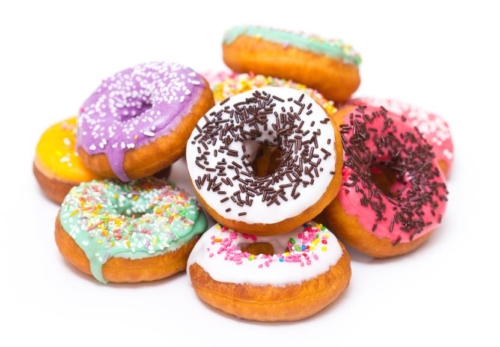
White flour is a simple carbohydrate, plus it’s typically combined with sugars: a guaranteed recipe for a crash. Avoid baked goods such as cakes, muffins, pies, cookies, doughnuts, brownies, and white bread, and opt for healthier choices. Also, choose whole grains for bread.
2. Sweets/Candy
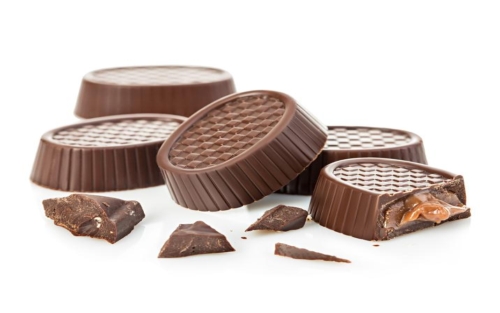
Getting tired after eating sugar is the result of your blood sugar level spiking and crashing. Overall, eating candy and sweets should be avoided, but it’s OK to have a treat now and again. The days of eating a whole bag of caramels or a box of chocolates need to come to an end because the sugar load imposed on your body is wreaking havoc and could lead to type 2 diabetes.
3. Caffeinated Drinks

Many people enjoy sweet coffee drinks from coffee shop chains, but the alarming reality is that those hot coffee drinks have an astounding amount of sugar in them, and it’s dangerous to consume such high levels of sugar regularly. Caffeine (2) on its own causes a surge in energy and then a crash—add a sugar rush to that and it’s no wonder you’re feeling so tired! Skip the sweet beverages with caffeine and opt for a regular cup of coffee or caffeine-free soda such as root beer. Better yet, drink water with lemon, but if you need your caffeine, don’t consume more than 400 milligrams per day; that appears to be the safe limit. Depending on the strength, that translates into two to four eight-ounce cups of coffee per day, or anywhere from five to 28 eight-ounce cups of black tea per day.
Is Diabetes the Reason Why You Feel Tired After Eating?
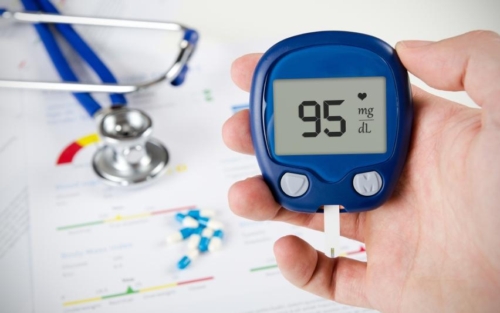
Diabetes could play a part in why you’re feeling extremely tired after eating because it affects fatigue as a result of you trying to manage your blood sugar level.
If you get tired after eating, diabetes may be a concern and is worth looking into. But even if you’re a diabetic, there can be a host of other reasons (such as those mentioned above) for your fatigue, so it’s important to look at your life and examine if there are other contributing factors contributing. Some questions to ask yourself are:
- Have I been running around a lot lately?
- Am I staying up later than normal?
- Am I drinking too much caffeinated coffee/tea/soda?
- Is my thyroid functioning properly?
- Is my testosterone level low?
- Do I have chronic fatigue or fibromyalgia?
- Am I doing shift work?
- If on a diet: Am I getting enough calories for my body weight and activity level?
That said, diabetes could play a part in why you’re feeling extremely tired after eating, because it affects fatigue as a result of you trying to manage your blood sugar level. Low blood sugar causes fatigue because there isn’t enough fuel in the blood for you to feel energized, but at the same time, a high level of sugar in the blood means that it’s not being absorbed properly, which can make you feel sluggish because your cells aren’t getting the oxygen and nutrients they need to perform optimally. Talk to your doctor to get tested for diabetes or to discuss how you can better manage your condition.
Read Next:
